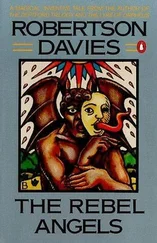MYSELF: I'm delighted. I would truly like to know you better.
DR. VON HALLER: It is yourself you must truly know better. And I should warn you that I shall appear as the Friend only for a limited time. Yes; I have many other parts to play before we are done. And even the Friend is not always benevolent: sometimes friends are truest when they seem unfriendly. It's funny that your Friend is a bear; I mean, the Friend often appears as an animal, but rarely as a savage animal… Now, let me see; we have reached your mother's death, and the moment when Caroline, mischievously but perhaps not untruly, made some suggestions that made you see yourself in a new light. It sounds almost like the end of childhood.
It was. I was adolescent now. Of course I knew a good deal about what people stupidly call the facts of life, but I had not had much physical experience of what sex meant. Now it began to be very troublesome. I find it odd, now, to read some of the popular books that glorify masturbation; I never thought it would kill me, or anything stupid like that, but I did my best to control it because – well, it seemed such a shabby thing. I suppose I didn't bring much imagination to it.
As I look back now I see that, although I knew a good deal about sex, I had retained an unusual innocence for my age, and I suppose it was my father's money, and the sense of isolation it brought, that made my innocence possible.
I told you what Netty had said about "Anglican guff". She was scornful of what she called "Pancake Christianity" because we ate pancakes at Shrove; she used to snort when my parents had lobster salad on Fridays in Lent and always demanded that meat be sent up to the nursery for herself. She never, I think, quite forgave my parents for leaving the wholesome bosom of evangelistic Protestantism. Church matters – I won't call it religion – played a big part in my growing up. We were attached to St. Simon Zeiotes, which had the reputation of being a rich people's church. It wasn't the most fashionable Anglican church in the city, but it had a special cachet. The fashionable one, I suppose, was St. Paul's, but it was Broad Church. I suppose you are familiar with these distinctions? And the High Church was St. Mary Magdalene, but it was poor. St. Simon Zeiotes was neither so High as Mary Mag, nor so rich as Paul's. The vicar was Canon Woodiwiss – he later became an Archdeacon and finally Bishop – and he was a gifted apostle to the well-to-do. I don't say that sneeringly. There always seems to be a notion that the rich can't be devout and that God doesn't like them as much as He likes the poor. There are lots of Christians who are all pity and charity for the miserable and the outcast, but who think it a spiritual duty to give the rich a good snubbing whenever they can. So Woodiwiss was a real find for a church like Simon Zeiotes.
He soaked the rich for money, which was fair enough. At least once a year he preached his famous sermon about "it is easier for a camel to go through the eye of a needle than for a rich man to enter into the kingdom of God". He would explain that the Needle's Eye was the name of a gate to Jerusalem which was so narrow that a heavily laden camel had to be relieved of some of its burden to get through, and that custom demanded that whatever was taken from the camel became the property of the Temple. So the obvious course for a rich man was to divest himself of some of his wealth for the church and thereby take a step toward salvation. I believe that in terms of history and theology this is all moonshine and Woodiwiss may even have invented it himself, but it worked like a charm. Because, as he said, following on from his text, "with God all things are possible". So he persuaded his rich camels to strip off a few bales of this world's goods and leave the negotiation of the needle's eye in his capable hands.
I didn't see much of the Canon, though I heard many of his wonder-working sermons. He had the gift of the gab as few parsons do. But I came much under the influence of one of his curates, who was named Gervase Knopwood.
Father Knopwood, as he liked us to call him, had an extraordinary way with boys, though on the face of it this seemed unlikely. He was an Englishman with an almost farcically upper-class accent and long front teeth and an appearance of being an elderly schoolboy. He wasn't old; probably he was in his early forties, but his hair was almost white and he had deep furrows in his face. He wasn't a joker or a jolly good fellow, and he played no games, though he was tough enough to have been a missionary in the Canadian West in some very difficult territory. But everybody respected him, and everybody feared him in a special way, for his standards were high. He expected the best from boys, and he had some ideas that to me were original.
For one thing, he didn't pay the usual lip-service to Art, which enjoyed more than sacred status in the kind of society in which we lived. I discovered this one day when I was talking to him in one of the rooms at the back of the church where we met for the Servers' Guild and Confirmation classes and that sort of thing. There was a picture on the wall, a perfectly hideous thing in vivid colours, of a Boy Scout looking the very picture of boyish virtue, and behind him stood the figure of Christ with His hand on the Scout's shoulder. I was making great game of it for the benefit of some other boys when I became aware that Father Knopwood was standing at a little distance, listening carefully.
"You don't think much of it, Davey?"
"Well, Father, could anybody think much of it? I mean, look at the way it's drawn, and the raw colours. And the sentimentality!"
"Tell us about the sentimentality."
"Well – it's obvious. I mean. Our Lord standing with His hand on the fellow's shoulder, and everything."
"I seem to have missed something you have seen. Why is it sentimental to suggest that Christ stands near to anyone, whether it is a boy, or a girl, or an old man, or anyone at all?"
"That's not sentimental, of course. But it's the way it's done. I mean, the concept is so crude."
"Must a concept be sophisticated to be a good one?"
"Well – surely?"
"Must the workmanship always be superior? If something is to be said, must it always be said with eloquence and taste?"
"That's what they teach us in the Art Club. I mean, if it's not well done it's no good, is it?"
"I don't know. I've never been able to make up my mind. A lot of modern artists are impatient of technical skill. It's one of the great puzzles. Why don't you come and see me after the meeting, and we'll talk about it and see what we can find out."
This led to seeing a lot of Father Knopwood. He used to ask me to meals in his rooms, as he called a bed-sitter with a gas ring in a cupboard that he had not far from the church. He wasn't poison-poor, but he didn't believe in spending money on himself. He taught me a lot and put some questions I have never been able to answer.
The art thing was one of his pet subjects. He loved art and knew a lot about it, but he was always rather afraid of it as a substitute religion. He was especially down on the idea that art was a thing in itself – that a picture was simply a flat composition of line and pigment, and the fact that it seemed also to be Mona Lisa or The Marriage at Cana was an irrelevance. Every picture, he insisted, was "of" something or "about" something. He was interesting about very modern pictures, and once he took me to a good show of some of the best, and talked about them as manifestations of questing, chaos, and sometimes of despair that artists sensed in the world about them and could not express adequately in any other way. "A real artist never does anything gratuitously or simply to be puzzling," he would say, "and if we don't understand it now, we shall understand it later."
Читать дальше












